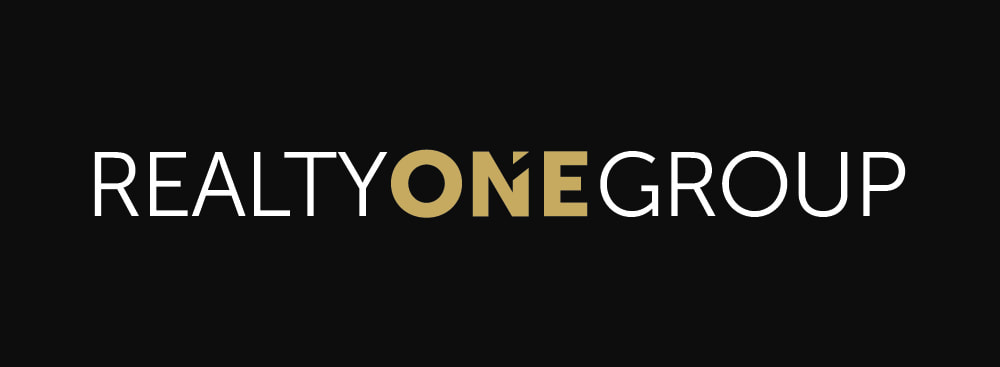|
Key Questions To Ask Yourself Before Buying a Home
Sometimes it can feel like everyone has advice when it comes to buying a home. While your friends and loved ones may have your best interests in mind, they may also be missing crucial information about today’s housing market that you need to make your best decision. Before you decide whether you’re ready to buy a home, you should know how to answer these three questions. 1. What’s Going on with Home Prices?Home prices are one factor that directly impacts how much it will cost to buy a home and how much you stand to gain as a homeowner when prices appreciate. The graph below shows just how much experts are forecasting prices to rise this year:Continued price appreciation is great news for existing homeowners but can pose a significant challenge if you wait to buy. Using these forecasts, you can determine just how much waiting could cost you. If prices increase based on the average of all forecasts (12.46%), a median-priced home that cost $350,000 in January of 2021 will cost an additional $43,610 by the end of the year. What does this mean for you? Put simply, with home prices increasing, the longer you wait, the more it could cost you. 2. Are Today’s Low Mortgage Rates Going To Last?Another significant factor that should inform your decision is mortgage interest rates. Today’s average rates remain close to record-lows. Much like prices, though, experts forecast rates will rise over the coming months, as the chart below shows:Your monthly mortgage payment can be significantly impacted by even the slightest increase in mortgage rates, which makes the overall cost of the home greater over time when you wait. 3. Why Is Homeownership Important to You?The final question is a personal one. Before deciding, you’ll need to understand your motivation to buy a home and why homeownership is an important goal for you. The financial benefits of owning a home are often easier to account for than the many emotional ones. The 2021 National Homeownership Market Survey shows that six of the nine reasons Americans value homeownership are because of how it impacts them on a personal, aspirational level. The survey says homeownership provides:
Bottom LineHomeownership is life-changing, and buying a home can positively impact you in so many ways. With any decision this big, it helps to have a trusted advisor by your side each step of the way. If you’re ready to begin your journey toward homeownership, let’s connect to discuss your options and begin your journey. Surprising Shift Favors Homeowners: Buyers Now Prefer Existing Homes
In April, the National Association of Home Builders (NAHB) posted an article, Home Buyers’ Preferences Shift Towards New Construction, which reported: “60% of people who were looking to buy a home in 2020 said they'd prefer new construction to an existing home.” However, it seems buyers are now shifting their preferences back to existing homes.The latest Consumer Confidence Survey reveals the percentage of Americans planning to buy a home in the next six months is virtually the same as it was back in March. However, the percentage that plan to buy a newly constructed home is lower for that same period. NAHB confirms this sentiment in their latest Housing Trends Report. The organization explains that existing homes are now the top preference among today’s buyers. Here’s a breakdown of those findings: Why the shift?There are several reasons why buyer preference is shifting. Here are two that impact purchasers looking to move in now:
Whether you’re shopping for new bed sheets or a new car, the drill is usually the same. Hit the reviews, check with friends, and scope out the best deal. After all, who wants to buy a car that racks up repair bills right away? Yet when picking a mortgage loan, borrowers don’t always think about comparison shopping.
In a Bankrate survey of recent home buyers, 12% of millennials said they believe their mortgage rates were too high. Some buyers may think that when mortgage rates are low, they don’t need to shop for the best offer. But even a few basis points can make a difference of thousands of dollars over the life of a loan, according to Bankrate, the Consumer Financial Protection Bureau, and the Federal Trade Commission. You may think mortgage shopping is as enjoyable as prepping for a tax audit. It’s true that comparing home mortgages can get complicated. But you don’t need a finance degree to make an informed decision. Here are some steps to get there. Find a Few LendersWhen looking for lenders to consider, loan officers recommend going to a few sources:
Typically, the loan officer would schedule a meeting focused on comparison shopping separately. If that sounds painful to borrowers who want to (literally) get moving, no problem, Koch says. “The borrower may be well versed and want to get right to what’s most relevant for them, which are the financial and comparison details. But a lot of people need to go over their own questions or cover key topics first.” Want to meet virtually? “Some folks are just more comfortable virtually, and that’s OK,” DeMarco says. “I’ve closed loans with people I’ve never talked to on the phone. It’s all via text.” Interview the Mortgage Loan OfficerWhichever way you choose, this meeting is prime time to interview the loan officer. Borrowers need to find someone who will be in there with them and who can problem solve. “We call unanticipated problems ‘icebergs,’” DeMarco says. “You think there’s smooth sailing. And then, suddenly, you smack into an iceberg.” Scope out the lender’s communication strategy and their process for delivering on time. “The process is highly complex, and you’d think professional lenders all would have mastered it. That’s not the case,” says Koch. “When a loan is not delivered on time, people’s finances and lives are basically balanced on the head of a pin, which is the closing date.” To avoid problems, ask questions like these: Fact finding about the process:
You’ll also want to bring up concerns like the impact on your credit score. Thirty-eight percent of buyers think comparing multiple mortgage offers in a short time will hurt their credit rating, according to a 2020 LendingTree survey. “As long as the lenders all pull the borrower’s credit within a couple of weeks, it’s counted as a single credit inquiry. So, it’s not a problem if they do it within a narrow band of time,” Koch explains. Get and Compare Financial InformationWhether you’re looking at a federal form called a loan estimate or a precursor form called the fees worksheet, you’ll see a breakout of closing costs, explains Koch. “To compare the lender financials, you’ll want to drill down to origination charges in the lender section. Make sure you’re comparing apples to apples. If one lender is offering a 30-year fixed rate at 2.875% with no lender fees and another is offering 2. 75% with $1,500 in lender fees, those are unlike products. Get the fees at the same rate to find out who’s less expensive.” 6 Tips to Get Mortgage Loan InformationComparison shopping can get complicated. Here are six ways to simplify the process. 1. Keep Your Pool ManageableMortgage shopping “depends on the borrower and the personality type and how they’re wired,” Koch says. “The process can seem overwhelming. That’s why it makes sense to have a select few options to compare so borrowers can process and assimilate them.” 2. Get a Fees WorksheetThe best way to compare effectively is to zero in on the fees worksheet, which the loan officer should provide. “You’ll be able to figure out just what the lender’s direct fees are, and you can make a nice, simple comparison.” 3. Understand a Fees Worksheet Versus a Loan EstimateKeep in mind that the numbers on the worksheet are estimates and not locked in. Interest rates are fluid and change daily or even more often, DeMarco says. On the other hand, after you have a contract with a seller, “the loan estimate and loan application are where the information is binding barring structural changes to the loan,” Koch says. Make sure the information reflects previous discussions with and disclosures by the loan officer. 4. Be Careful Interpreting Third-Party FeesThird-party fee estimates are included on the worksheet. Two lenders could each come up with different estimates for title, escrow, or appraisal fees, Koch explains. But not all are negotiable. For instance, the seller chooses the title company, so the lender doesn’t control the choice or the fees. The lender could be choosing the high or low end of a range, but it’s only an estimate. 5. Think About TimingMake sure lenders are using the same time frame for locking in pricing and that it will extend through the closing, Koch notes. “A lender might offer a rate that’s a lock for three weeks, but if you anticipate or know your closing date will be five or six weeks out, that’s a problem.” 6. Consider Applying for Loan Approval Before Finding a Property“Many lenders will not do this,” Koch says. “But some will allow borrowers to go through the formal underwriting process — not just preapproval — without having a property. The borrowers can get a bona fide mortgage commitment with all of the major buyer financials truly underwritten at that point. Then when borrowers make an offer, they can close more quickly.” You’ll have to invest some time and effort into comparison shopping for a mortgage loan and selecting a lender and a loan officer. But your return on investment can pay off over the long haul. |
Let's ConnectWith the correct person by your side, the buying and selling process doesn't have to be full of stress, doubt and anxiety - it can actually be FUN! Archives
July 2024
Categories
All
Jacquelyn Duke, Realtor®
Licensed to Sell in the State of Iowa [email protected] (515) 240-7483 Realty One Group Impact 617 SW 3rd Street Ste 101 Ankeny, IA 50023 Disclaimer: The material on this site is solely for informational purposes. No warranties or representations have been made. |



 RSS Feed
RSS Feed


